Hazing, a harmful practice deeply ingrained in initiation rituals, has been a longstanding issue affecting institutions and organizations worldwide. Nevertheless, individuals hold the potential to bring about significant change in the fight against hazing. By grasping the consequences of hazing, fostering empathy and support, promoting accountability, and taking resolute action, we can strive to eliminate hazing and establish safer environments for all.
Understanding the Impact: To make a difference against hazing, it is vital to comprehend its harmful effects on individuals and communities. Educating oneself about the physical, emotional, and psychological repercussions endured by victims is crucial. By immersing oneself in real-life stories of survivors, their struggles, and the enduring impact of hazing on their lives, one can gain the necessary motivation to take action against hazing.
Fostering Empathy and Support: Empathy serves as a potent tool in the battle against hazing. Recognize that no one should be subjected to abuse or humiliation under the guise of initiation or acceptance. By actively empathizing with potential victims and cultivating a supportive environment, individuals can make a meaningful difference. Engage in conversations about hazing, genuinely listen to survivors, and validate their experiences. Encourage open dialogue and provide emotional support to those affected. By fostering empathy and solidarity, one contributes to dismantling the culture that perpetuates hazing.
Promoting Accountability: Accountability plays a pivotal role in combating hazing. Encourage institutions, organizations, and communities to establish and enforce strict anti-hazing policies. Advocate for comprehensive education and training programs that emphasize the negative consequences of hazing. Support the implementation of clear reporting mechanisms, confidential hotlines, and whistleblower protections to ensure individuals feel secure when coming forward with hazing allegations. By promoting accountability, one fosters an environment where perpetrators face consequences for their actions, thereby discouraging future instances of hazing.
Taking Decisive Action: To effect lasting change, taking decisive action against hazing is essential. Consider the following steps: a. Raise awareness: Organize educational workshops, seminars, and awareness campaigns to educate individuals about the dangers of hazing. Utilize social media platforms and other communication channels to reach a broader audience. b. Encourage bystander intervention: Empower individuals to intervene and speak out when witnessing hazing incidents. Equip them with the necessary tools and knowledge to safely intervene and support victims. c. Collaborate with like-minded individuals: Join or establish local or national anti-hazing organizations, volunteer time, or participate in community initiatives focused on eradicating hazing. d. Advocate for change: Engage in conversations with institutional leaders, policymakers, and community members to advocate for stricter regulations and zero-tolerance policies against hazing. Use your voice to advocate for systemic change.
Every individual possesses the power to make a difference against hazing. By comprehending the impact, fostering empathy, promoting accountability, and taking decisive action, we can collectively combat hazing and create environments that prioritize respect, inclusivity, and safety. Let us stand together against hazing, support survivors, and work towards a future where initiation practices are free from abuse, and everyone can thrive without fear of hazing.
 NFHS High School Essay Contest
NFHS High School Essay Contest
2023 First Place Winner
Brandon Granger
Parkway Center City Middle College
Philadelphia, PA


